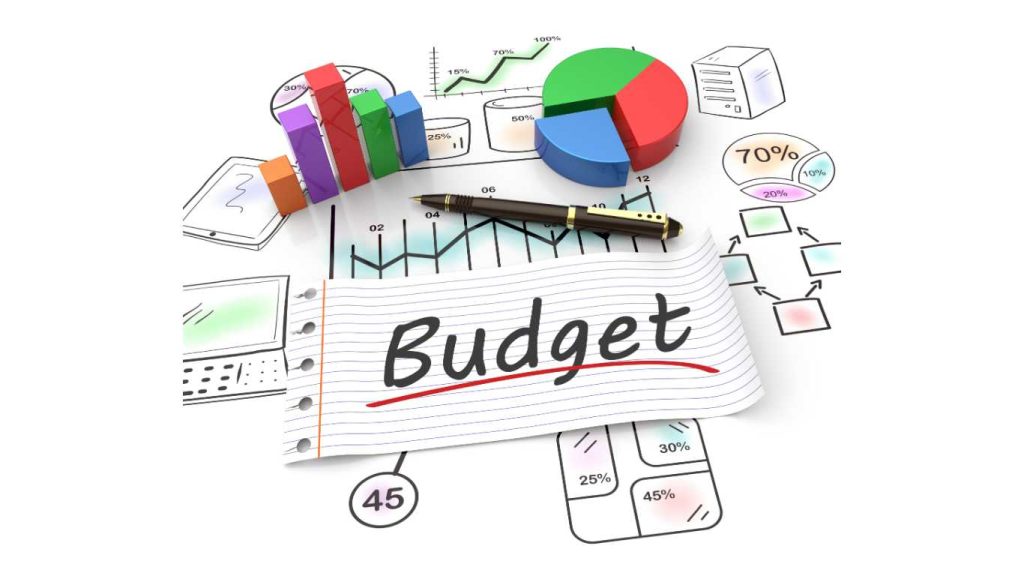Channelize your budgeting powers to thrive against all odds.
Budgeting plays a pivotal role in the success of solo and small law firms. With limited resources and financial constraints, having a well-defined budget is crucial for these firms. It enables them to allocate resources strategically, plan for expenses, and ensure optimal financial health. By setting clear financial goals and tracking income and expenses, solo and small law firms can make informed decisions, identify areas of improvement, and maximize profitability. Budgeting also facilitates long-term planning, helps in managing cash flow, and ensures stability in an increasingly competitive legal landscape.
Effective budgeting is a cornerstone of sound financial management for solo and small law firms. By creating and adhering to a budget, firms can gain a comprehensive view of their financial situation. It allows them to track expenses, identify cost-saving opportunities, and allocate resources efficiently. With a well-planned budget, firms can make informed decisions on investments, staff salaries, marketing efforts, and other key areas. By monitoring financial performance against budgeted targets, firms can take corrective actions promptly, optimize cash flow, and achieve their financial goals. Ultimately, effective budgeting enhances overall success by fostering financial stability, growth, and profitability.
Benefits of Budgeting for Solo and Small Law Firms

Utilizing budgeting strategies offers various advantages for your legal businesses. It provides a clear roadmap for financial planning and resource distribution. By having a well-defined budget, businesses can efficaciously prioritize expenditures, optimize resource implementation, and minimize wasteful spending. Budgeting also facilitates businesses to counter financial challenges, make informed decisions, and adapt to dynamic market conditions. Moreover, it backs up responsibility and transparency within the organization, nurturing a culture of financial discipline and responsibility.
Budgeting plays a vital role in enhancing decision-making, cash flow management, and profitability for businesses. By setting financial goals and tracking income and expenses, businesses gain valuable insights into their financial performance. This information empowers them to make data-driven decisions, identify areas of improvement, and seize opportunities for growth. Budgeting also facilitates effective cash flow management, ensuring that businesses have sufficient funds to cover expenses and investments. Additionally, by aligning expenditures with revenue projections, budgeting helps maximize profitability by controlling costs and increasing operational efficiency.
Budgeting provides long-term benefits that contribute to business growth and stability. By creating a roadmap for financial success, budgeting helps businesses plan for the future and set realistic goals. It allows them to allocate resources strategically, invest in areas that drive growth, and mitigate financial risks. Furthermore, budgeting fosters financial stability by promoting prudent financial management practices and reducing the likelihood of overspending or cash flow shortages. Ultimately, businesses that embrace budgeting as a core practice position themselves for sustained growth, improved financial health, and enhanced stability in a competitive business landscape.
Steps to Create an Effective Budget

Here’s a Step-by-Step Process for Creating a Budget for Solo and Small Law Firms:
- Assess the current financial situation of the firm, including income and expenses.
- Set clear financial goals aligned with the firm’s objectives.
- Identify key expense categories such as salaries, overhead costs, marketing, and technology.
- Gather accurate financial data from invoices, bank statements, and financial software.
- Estimate revenue based on historical data and market trends.
- Allocate resources by assigning specific amounts to each expense category.
- Regularly monitor and review the budget to make adjustments as needed.
- Ensure the budget remains realistic and effective for the firm’s financial management.
Tips on Gathering Financial Data, Setting Realistic Goals, and Allocating Resources:
- Maintain detailed records of income and expenses to track financial performance effectively.
- Set realistic goals by considering the firm’s past performance and market conditions.
- Prioritize essential expenses and consider future needs when allocating resources.
- Conduct thorough research and use financial projections to avoid over- or under-allocating resources.
- Regularly review and update the budget to reflect changes in the firm’s financial situation.
- Create a budget that supports the firm’s financial objectives and enables effective resource allocation.
Effective Budgeting Strategies for Solo and Small Law Firms

- Understand your cash flow
The first step in effective budgeting is understanding your cash flow. This involves tracking your income and expenses to determine how much money is coming in and going out of your firm each month. Start by creating a spreadsheet or using accounting software to record all of your income and expenses, including bills, client payments, and any other income streams. By understanding your cash flow, you can find any areas where you can cut costs or increase gain, and make informed decisions about how to allocate your resources.
- Prioritize your expenses
Once you have a clear understanding of your cash flow, it’s necessary to prioritize your expenses. Make a list of all your fixed expenses, such as rent, utilities, and insurance, and your changeable expenses, such as marketing, office supplies, and travel. Then, rank them in order of value. This will help you identify which expenditures you can bring down or get rid of if necessary and which expenses are indispensable to the operation of your firm.
- Set financial goals
Setting financial goals is an excellent way to stay driven and focused on your business objectives. Whether it’s maximizing your revenue, reducing your expenses, or improving your cash flow, having particular goals in mind can help you stay on track and measure your development. Set both short-term and long-term goals, and make sure they are realistic and achievable.
- Monitor your spending
Monitoring your spending is essential to effective budgeting. Regularly review your expenses to ensure that you are staying within your budget and making informed decisions about your spending. Consider using expense tracking software to make this process more manageable and make adjustments to your budget as needed.
- Find ways to reduce expenses
Finding ways to reduce expenses is a critical part of effective budgeting. Consider renegotiating contracts with vendors, switching to more cost-effective software or equipment, or finding ways to reduce your energy usage. Slight changes can add up over time and make a significant impact on your bottom line.
- Increase revenue
Increasing revenue is another way to improve your financial situation. Consider diversifying your practice areas, offering new services, or expanding your law firm’s marketing efforts to attract more clients. You can also explore alternative fee arrangements, such as contingency or flat fees, to generate more income.
How CaseFox can help?
CaseFox legal management software can be highly beneficial in creating effective budgeting strategies for solo and small law firms. Here’s how CaseFox can assist:
- Time and Expense Tracking: CaseFox provides comprehensive time and expense tracking features, allowing lawyers to accurately monitor billable hours and expenses associated with each case. This data serves as a valuable resource for budgeting purposes.
- Real-Time Financial Insights: CaseFox offers real-time financial reports and dashboards, enabling lawyers to gain insights into their firm’s financial performance. These reports help in evaluating revenue streams, identifying high-cost areas, and making informed decisions for budget allocation.
- Budget Planning and Management: With CaseFox, solo, and small law firms can create budgets for individual cases or the entire firm. It allows setting budget limits, tracking actual expenses against the budget, and sending alerts when the budget is close to being exceeded. This feature ensures adherence to financial goals and promotes responsible spending.
- Cost and Profitability Analysis: CaseFox enables lawyers to analyze the profitability of their cases and practice areas. By understanding the cost-benefit ratio, firms can make informed decisions about resource allocation, fee structures, and identify areas that contribute most to their bottom line.
- Invoicing and Billing: Efficient invoicing and billing features in CaseFox help streamline the financial management process. It ensures accurate and timely invoicing, facilitates proper tracking of payments, and aids in maintaining a healthy cash flow.
- Integration with Accounting Systems: CaseFox integrates seamlessly with popular accounting software, simplifying the financial management process by automating data transfer and eliminating manual entry errors.
By leveraging CaseFox’s specialties and abilities, solo and small law firms can set up effective budgeting strategies, amend financial administration, and strengthen overall profitability.

Conclusion:
In conclusion, effective budgeting is important for the success of solo and small law firms. By knowing your cash flow, prioritizing your expenses, setting financial goals, monitoring your spending, finding ways to reduce expenses, and increasing revenue, you can take control of your finances and accomplish your business objectives. Remember to review and adjust your budget regularly as necessary to stay on track and make informed decisions about the financial health of your firm..

